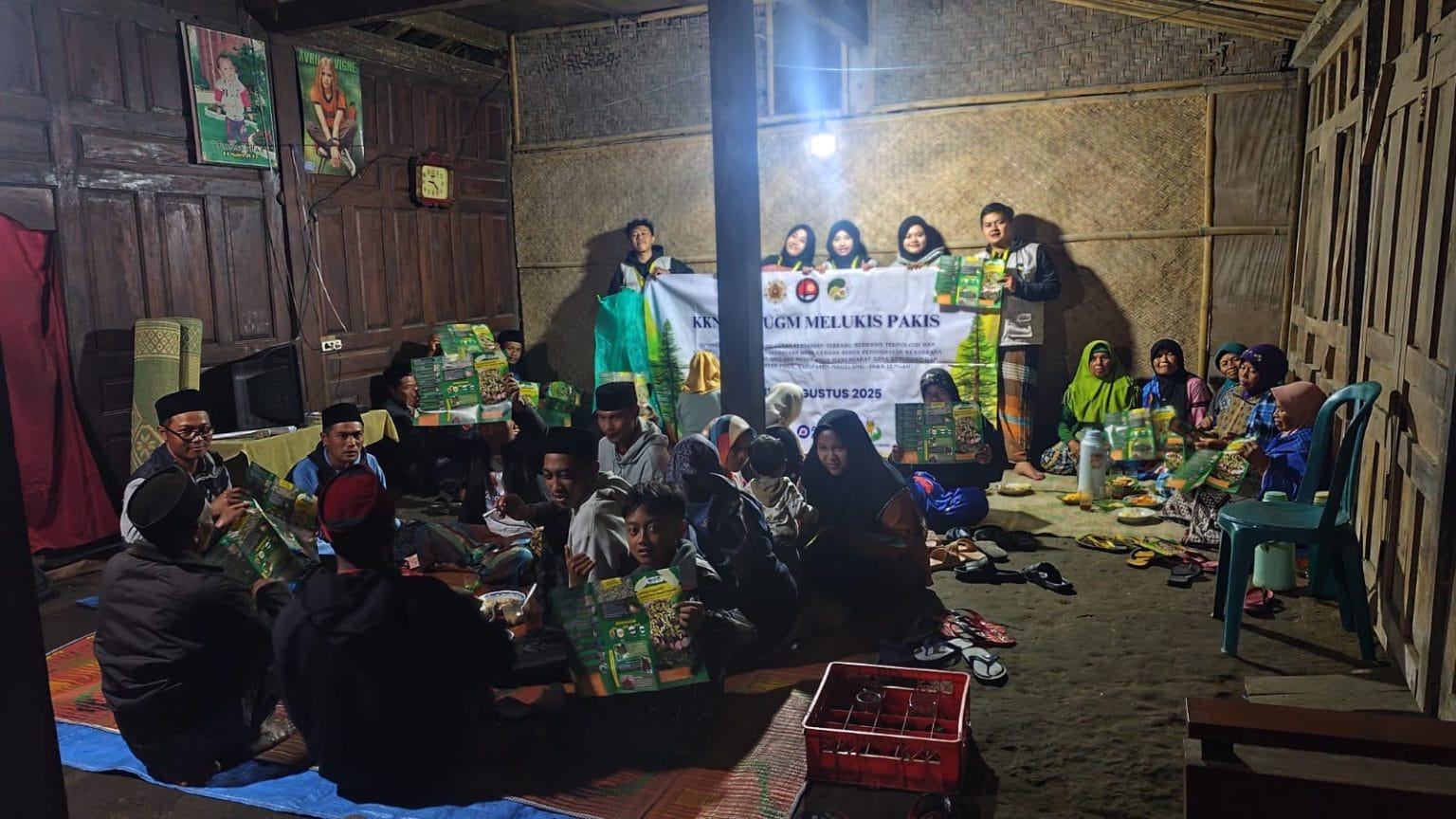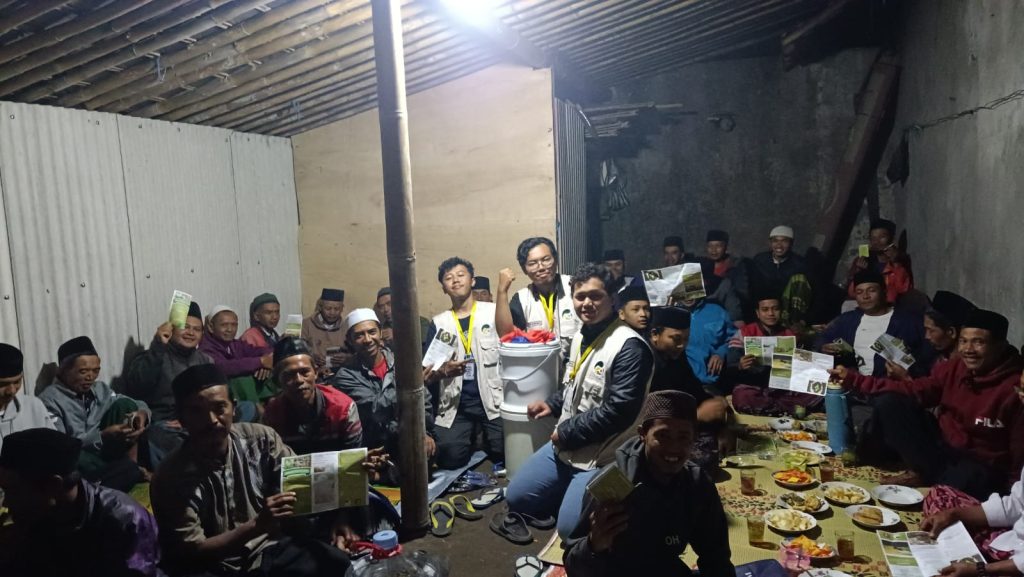
The Community Service–Community Empowerment Learning Program of Universitas Gadjah Mada (KKN-PPM UGM) “Melukis Pakis” carried out a community empowerment program in Ketundan and Kragilan Villages, Pakis Subdistrict, Magelang Regency, Central Java. This initiative adopted the theme “Optimization of Integrated Agricultural Land Potential Based on Technology and Local Wisdom for the Empowerment of Smart Villages and Raising Awareness of Oral Health Risks in the Communities of Ketundan and Kragilan Villages, Pakis Subdistrict, Magelang Regency, Central Java” with Field Supervisor (DPL) Budi Rodestawati, S.Kp.G., M.P.H.
Surya Adetya (Soil Science 2022), a member of the Melukis Pakis team and a student of the Faculty of Agriculture UGM (Faperta UGM), initiated two main programs: “Workshop on the Utilization of BSF Maggots as Bioconverters of Household and Vegetable Organic Waste” and “Workshop on the Making of Gallon Composters for the Production of Liquid Organic Fertilizer as a Solution to Acid Soil pH Problems.” These were held on Thursday, 10 July 2025, and Thursday, 25 July 2025, targeting farmers, Women Farmer Groups (KWT), and the general public of Gerotan Hamlet.

According to Surya Adetya, organic waste management in the area still faces several challenges, including low public awareness of its economic value. “Some residents are not yet accustomed to utilizing organic waste into useful products, so a persuasive approach and real-life examples are needed to encourage adoption. The limited timeframe of KKN also presents a challenge in ensuring consistent implementation of the technology in the community,” he explained.
During the workshops, residents of Gerotan Hamlet showed strong enthusiasm, especially as the materials provided had direct benefits for their farming activities. Several participants actively asked questions and practiced firsthand in making BSF maggots and gallon composters.
“Through this program, we hope the people of Gerotan Hamlet can continue to independently apply organic waste management technologies, develop liquid organic fertilizer products, and share this knowledge with other villagers. Hopefully, this practice will help reduce fertilizer costs, improve soil fertility, and keep the village environment clean,” added Surya Adetya.
This program aligns with the commitment to achieving several Sustainable Development Goals (SDGs), particularly SDG 2: Zero Hunger, SDG 4: Quality Education, SDG 11: Sustainable Cities and Communities, SDG 12: Responsible Consumption and Production, SDG 15: Life on Land, and SDG 17: Partnerships for the Goals.
Author: Surya Adetya, Agrit Kirana Bunda
Editor: Desi Utami
Photo: Melukis Pakis Team
